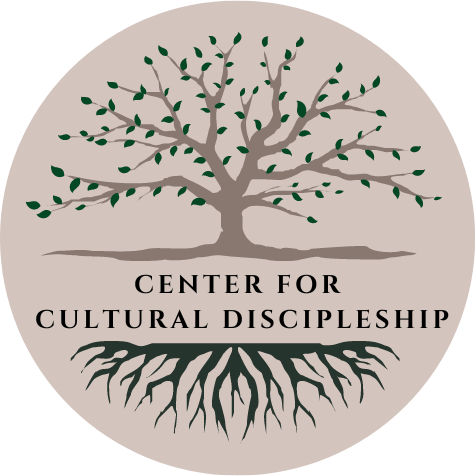Karen sat in my office on the verge of tears. She had arrived sharply on time and had given me no indication about why she might want to meet. As a staff member with our church, I was used to people reaching out for appointment, usually to ask questions about theology, faith, or our church’s position on current issues. However, I never got completely comfortable with these kinds of moments. I had no idea what I was walking into, much less have any certainty that I would be able to help Karen. All I knew, with one look, was that Karen was in pain.
Karen went on to tell me about her family and how important they were to her. Sure, things had gotten messy over the years, but by her late twenties, Karen had been hopeful that her parents and siblings would be a lifelong place she could call home. She was thirty years old, unmarried and the only Christian in her family. She was making her way in the world as a single woman and her family was a primary support for her.
Then the pain came. Karen shared that over the last few months every one of her siblings had come out as LGBTQ. One sibling was gay, one was gender transitioning and the whole family was rallying around a kind of life that Karen could not affirm. If that were all, perhaps it would be ok. Karen had no desire to control their lives and would love her siblings no matter what course their life took. But her parents were giving her an ultimatum. She needed to outwardly show her support and verbal affirmation, or she would not be welcome at family gatherings.
Karen felt stuck and afraid. In between sobs she said, “What do I do? I don’t want to lose my family, but I can’t put a rainbow flag in my front yard. Can I? I’m not even sure what Jesus wants me to do. How do I love them when they feel like my view is hateful? I’m not sure I understand my view anyway.”
There it is. Do you see it? Karen has two deep challenges.
Her first challenge was deeply personal. She was preparing herself to experience the devastation that comes when a family breaks apart. She felt threatened with becoming an orphan. She wanted to love her siblings, but she didn’t know how to love them in a way they could receive if she disagreed about something that felt deeply personal to them as well.
I was amazed at her next statement, “You know, I think I could lose my family and be ok if I knew that I was being faithful to Jesus. But I’m not sure I am even doing that well.” What courage. What confusion.
There was her second challenge. Karen could endure a lot of pressure. She could even experience rejection that might come because of trying to be faithful to Christ. But the threat she felt was not just about her family relationships. It went to the core of her intimacy with God and her life with Jesus. Her faith felt threatened. Was she really being faithful? How “different” and “clear” did she need to be to show she was set apart and faithful? How could she be different without alienating her family in an unloving manner? Was her understanding of the Bible that much different than the love and relationships her family had in mind?
Karen had been in church for years. She had heard sermons on God’s love and His offer of new life through the person of Jesus. She had been in Bible studies and small groups where sex outside of a male/female covenant marriage was talked about as sinful and dangerous. However, she had never been part of a nuanced conversation about about sexual orientation, gender dysphoria, love amidst identity transitions, and Christian faithfulness .
But that day she found herself in a moment when the simplistic answers no longer worked for her complex world. Some days she felt like she had to wear a trigger warning on her clothes that said, “Warning, the Christian in this shirt believes in love, sin, and the Bible.” Other days she felt like maybe her church was wrong. Maybe Jesus just wanted people to feel loved and questions about sexual identity were not as dangerous as her pastor led her to believe.
Karen’s story was one of many I have heard over the years. Sometimes I sat with parents trying to figure out how to love a child and still reflect a godly faith with objective moral standards. Sometimes it was high schoolers trying to be faithful to Jesus but caught between a perceived choice to love their friends unconditionally or share good news with people that found the news anything but good.
I have watched followers of Jesus attempt to live in this tension and navigate relationships in spaces surrounding sexuality, race, abortion, poverty, justice, politics, personal expression, anxiety, grief, hopes for the future…and the list goes on. Over the years, one thing has become abundantly clear. We can no longer throw a Bible verse, a book suggestion, or a podcast at a skeptical world and pretend all is well. We can no longer give our children simplistic answers and tell them to have faith. We can no longer be fascinated with apologetics and miss the real reasons our friends, neighbors, kids, and colleagues wonder if the good news is really good. We need more and we know it. We know we need a thicker understanding of our faith and a winsome way forward, reflecting the personal and invitational way of Jesus.
Yes, Karen needed both: a richer understanding of God’s good design for sexuality and a way to be invitational herself, without being confrontational. She needed a faith informed by worldview, biblical philosophy, and apologetics. But she didn’t need to become that weird person in the corner of the room, living in a joyless academic world, and reading old dead guys at nauseum. She needed to see the soul as more complex that inputting the right argument and generating a better life as a result.
Simply, Karen’s faith needed to account for the complexity of her world, in all its delicate nuances, and the richness of the human soul, with all our interwoven experiences.
So, how do we proceed? Simply, we must learn the two critical tools of Cultural Discipleship, First, we must learn the Story of Reality, Second, we must learn to inhabit the Story of Reality in this world.

